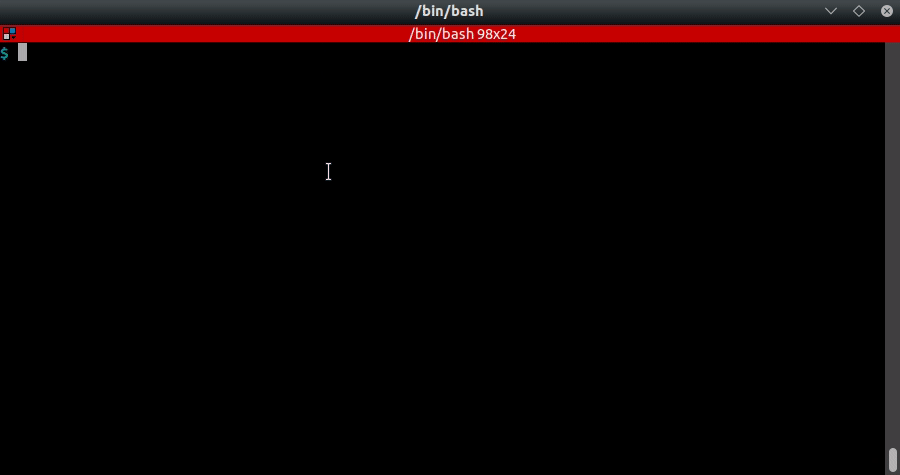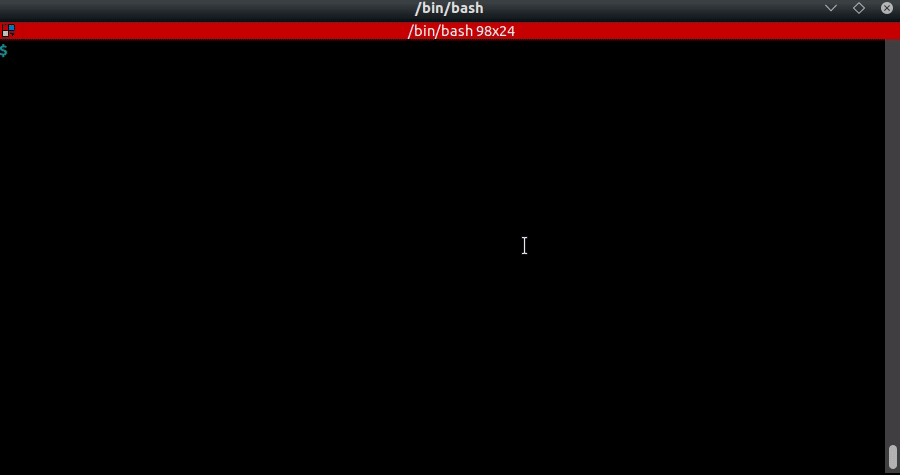
Security News
Meet Socket at Black Hat and DEF CON 2025 in Las Vegas
Meet Socket at Black Hat & DEF CON 2025 for 1:1s, insider security talks at Allegiant Stadium, and a private dinner with top minds in software supply chain security.


CodExt is a (Python2-3 compatible) library that extends the native codecs library (namely for adding new custom encodings and character mappings) and provides 120+ new codecs, hence its name combining CODecs EXTension. It also features a guess mode for decoding multiple layers of encoding and CLI tools for convenience.
$ pip install codext
| Want to contribute a new codec ? | Want to contribute a new macro ? |
|---|---|
| Check the documentation first Then PR your new codec | PR your updated version of macros.json |



$ codext -i test.txt encode dna-1
GTGAGCGGGTATGTGA
$ echo -en "test" | codext encode morse
- . ... -
$ echo -en "test" | codext encode braille
⠞⠑⠎⠞
$ echo -en "test" | codext encode base100
👫👜👪👫
$ echo -en "Test string" | codext encode reverse
gnirts tseT
$ echo -en "Test string" | codext encode reverse morse
--. -. .. .-. - ... / - ... . -
$ echo -en "Test string" | codext encode reverse morse dna-2
AGTCAGTCAGTGAGAAAGTCAGTGAGAAAGTGAGTGAGAAAGTGAGTCAGTGAGAAAGTCAGAAAGTGAGTGAGTGAGAAAGTTAGAAAGTCAGAAAGTGAGTGAGTGAGAAAGTGAGAAAGTC
$ echo -en "Test string" | codext encode reverse morse dna-2 octal
101107124103101107124103101107124107101107101101101107124103101107124107101107101101101107124107101107124107101107101101101107124107101107124103101107124107101107101101101107124103101107101101101107124107101107124107101107124107101107101101101107124124101107101101101107124103101107101101101107124107101107124107101107124107101107101101101107124107101107101101101107124103
$ echo -en "AGTCAGTCAGTGAGAAAGTCAGTGAGAAAGTGAGTGAGAAAGTGAGTCAGTGAGAAAGTCAGAAAGTGAGTGAGTGAGAAAGTTAGAAAGTCAGAAAGTGAGTGAGTGAGAAAGTGAGAAAGTC" | codext -d dna-2 morse reverse
test string
$ codext add-macro my-encoding-chain gzip base63 lzma base64
$ codext list macros
example-macro, my-encoding-chain
$ echo -en "Test string" | codext encode my-encoding-chain
CQQFAF0AAIAAABuTgySPa7WaZC5Sunt6FS0ko71BdrYE8zHqg91qaqadZIR2LafUzpeYDBalvE///ug4AA==
$ codext remove-macro my-encoding-chain
$ codext list macros
example-macro
$ echo "Test string !" | base122
*.7!ft9�-f9Â
$ echo "Test string !" | base91
"ONK;WDZM%Z%xE7L
$ echo "Test string !" | base91 | base85
B2P|BJ6A+nO(j|-cttl%
$ echo "Test string !" | base91 | base85 | base36 | base58-flickr
QVx5tvgjvCAkXaMSuKoQmCnjeCV1YyyR3WErUUErFf
$ echo "Test string !" | base91 | base85 | base36 | base58-flickr | base58-flickr -d | base36 -d | base85 -d | base91 -d
Test string !
$ echo "Test string !" | base91 | base85 | base36 | base58-flickr | unbase -m 3
Test string !
$ echo "Test string !" | base91 | base85 | base36 | base58-flickr | unbase -f Test
Test string !
Getting the list of available codecs:
>>> import codext
>>> codext.list()
['ascii85', 'base85', 'base100', 'base122', ..., 'tomtom', 'dna', 'html', 'markdown', 'url', 'resistor', 'sms', 'whitespace', 'whitespace-after-before']
>>> codext.encode("this is a test", "base58-bitcoin")
'jo91waLQA1NNeBmZKUF'
>>> codext.encode("this is a test", "base58-ripple")
'jo9rA2LQwr44eBmZK7E'
>>> codext.encode("this is a test", "base58-url")
'JN91Wzkpa1nnDbLyjtf'
>>> codecs.encode("this is a test", "base100")
'👫👟👠👪🐗👠👪🐗👘🐗👫👜👪👫'
>>> codecs.decode("👫👟👠👪🐗👠👪🐗👘🐗👫👜👪👫", "base100")
'this is a test'
>>> for i in range(8):
print(codext.encode("this is a test", "dna-%d" % (i + 1)))
GTGAGCCAGCCGGTATACAAGCCGGTATACAAGCAGACAAGTGAGCGGGTATGTGA
CTCACGGACGGCCTATAGAACGGCCTATAGAACGACAGAACTCACGCCCTATCTCA
ACAGATTGATTAACGCGTGGATTAACGCGTGGATGAGTGGACAGATAAACGCACAG
AGACATTCATTAAGCGCTCCATTAAGCGCTCCATCACTCCAGACATAAAGCGAGAC
TCTGTAAGTAATTCGCGAGGTAATTCGCGAGGTAGTGAGGTCTGTATTTCGCTCTG
TGTCTAACTAATTGCGCACCTAATTGCGCACCTACTCACCTGTCTATTTGCGTGTC
GAGTGCCTGCCGGATATCTTGCCGGATATCTTGCTGTCTTGAGTGCGGGATAGAGT
CACTCGGTCGGCCATATGTTCGGCCATATGTTCGTCTGTTCACTCGCCCATACACT
>>> codext.decode("GTGAGCCAGCCGGTATACAAGCCGGTATACAAGCAGACAAGTGAGCGGGTATGTGA", "dna-1")
'this is a test'
>>> codecs.encode("this is a test", "morse")
'- .... .. ... / .. ... / .- / - . ... -'
>>> codecs.decode("- .... .. ... / .. ... / .- / - . ... -", "morse")
'this is a test'
>>> with open("morse.txt", 'w', encoding="morse") as f:
f.write("this is a test")
14
>>> with open("morse.txt",encoding="morse") as f:
f.read()
'this is a test'
>>> codext.decode("""
=
X
:
x
n
r
y
Y
y
p
a
`
n
|
a
o
h
`
g
o
z """, "whitespace-after+before")
'CSC{not_so_invisible}'
>>> print(codext.encode("An example test string", "baudot-tape"))
***.**
. *
***.*
* .
.*
* .*
. *
** .*
***.**
** .**
.*
* .
* *. *
.*
* *.
* *. *
* .
* *.
* *. *
***.
*.*
***.*
* .*
base1: useless, but for the sake of completenessbase2: simple conversion to binary (with a variant with a reversed alphabet)base3: conversion to ternary (with a variant with a reversed alphabet)base4: conversion to quarternary (with a variant with a reversed alphabet)base8: simple conversion to octal (with a variant with a reversed alphabet)base10: simple conversion to decimalbase11: conversion to digits with a "a"base16: simple conversion to hexadecimal (with a variant holding an alphabet with digits and letters inverted)base26: conversion to alphabet lettersbase32: classical conversion according to the RFC4648 with all its variants (zbase32, extended hexadecimal, geohash, Crockford)base36: Base36 conversion to letters and digits (with a variant inverting both groups)base45: Base45 DRAFT algorithm (with a variant inverting letters and digits)base58: multiple versions of Base58 (bitcoin, flickr, ripple)base62: Base62 conversion to lower- and uppercase letters and digits (with a variant with letters and digits inverted)base63: similar to base62 with the "_" addedbase64: classical conversion according to RFC4648 with its variant URL (or file) (it also holds a variant with letters and digits inverted)base67: custom conversion using some more special characters (also with a variant with letters and digits inverted)base85: all variants of Base85 (Ascii85, z85, Adobe, (x)btoa, RFC1924, XML)base91: Base91 custom conversionbase100 (or emoji): Base100 custom conversionbase122: Base100 custom conversionbase-genericN: see base encodings ; supports any possible baseThis category also contains ascii85, adobe, [x]btoa, zeromq with the base85 codec.
baudot: supports CCITT-1, CCITT-2, EU/FR, ITA1, ITA2, MTK-2 (Python3 only), UK, ...baudot-spaced: variant of baudot ; groups of 5 bits are whitespace-separatedbaudot-tape: variant of baudot ; outputs a string that looks like a perforated tapebcd: Binary Coded Decimal, encodes characters from their (zero-left-padded) ordinalsbcd-extended0: variant of bcd ; encodes characters from their (zero-left-padded) ordinals using prefix bits 0000bcd-extended1: variant of bcd ; encodes characters from their (zero-left-padded) ordinals using prefix bits 1111excess3: uses Excess-3 (aka Stibitz code) binary encoding to convert characters from their ordinalsgray: aka reflected binary codemanchester: XORes each bit of the input with 01manchester-inverted: variant of manchester ; XORes each bit of the input with 10rotateN: rotates characters by the specified number of bits (N belongs to [1, 7] ; Python 3 only)a1z26: keeps words whitespace-separated and uses a custom character separatorcases: set of case-related encodings (including camel-, kebab-, lower-, pascal-, upper-, snake- and swap-case, slugify, capitalize, title)dummy: set of simple encodings (including integer, replace, reverse, word-reverse, substite and strip-spaces)octal: dummy octal conversion (converts to 3-digits groups)octal-spaced: variant of octal ; dummy octal conversion, handling whitespace separatorsordinal: dummy character ordinals conversion (converts to 3-digits groups)ordinal-spaced: variant of ordinal ; dummy character ordinals conversion, handling whitespace separatorsgzip: standard Gzip compression/decompressionlz77: compresses the given data with the algorithm of Lempel and Ziv of 1977lz78: compresses the given data with the algorithm of Lempel and Ziv of 1978pkzip_deflate: standard Zip-deflate compression/decompressionpkzip_bzip2: standard BZip2 compression/decompressionpkzip_lzma: standard LZMA compression/decompression:warning: Compression functions are of course definitely NOT encoding functions ; they are implemented for leveraging the
.encode(...)API fromcodecs.
affine: aka Affine Cipheratbash: aka Atbash Cipherbacon: aka Baconian Cipherbarbie-N: aka Barbie Typewriter (N belongs to [1, 4])citrix: aka Citrix CTX1 password encodingrailfence: aka Rail Fence CipherrotN: aka Caesar cipher (N belongs to [1,25])scytaleN: encrypts using the number of letters on the rod (N belongs to [1,[)shiftN: shift ordinals (N belongs to [1,255])xorN: XOR with a single byte (N belongs to [1,255]):warning: Crypto functions are of course definitely NOT encoding functions ; they are implemented for leveraging the
.encode(...)API fromcodecs.
blake: includes BLAKE2b and BLAKE2s (Python 3 only ; relies on hashlib)checksums: includes Adler32 and CRC32 (relies on zlib)crypt: Unix's crypt hash for passwords (Python 3 and Unix only ; relies on crypt)md: aka Message Digest ; includes MD4 and MD5 (relies on hashlib)sha: aka Secure Hash Algorithms ; includes SHA1, 224, 256, 384, 512 (Python2/3) but also SHA3-224, -256, -384 and -512 (Python 3 only ; relies on hashlib)shake: aka SHAKE hashing (Python 3 only ; relies on hashlib):warning: Hash functions are of course definitely NOT encoding functions ; they are implemented for convenience with the
.encode(...)API fromcodecsand useful for chaning codecs.
braille: well-known braille language (Python 3 only)ipsum: aka lorem ipsumgalactic: aka galactic alphabet or Minecraft enchantment language (Python 3 only)leetspeak: based on minimalistic elite speaking rulesmorse: uses whitespace as a separatornavajo: only handles letters (not full words from the Navajo dictionary)radio: aka NATO or radio phonetic alphabetsouthpark: converts letters to Kenny's language from Southpark (whitespace is also handled)southpark-icase: case insensitive variant of southparktap: converts text to tap/knock code, commonly used by prisonerstomtom: similar to morse, using slashes and backslashesdna: implements the 8 rules of DNA sequences (N belongs to [1,8])letter-indices: encodes consonants and/or vowels with their corresponding indicesmarkdown: unidirectional encoding from Markdown to HTMLhexagram: uses Base64 and encodes the result to a charset of I Ching hexagrams (as implemented here)klopf: aka Klopf code ; Polybius square with trivial alphabetical distributionresistor: aka resistor color codesrick: aka Rick cipher (in reference to Rick Astley's song "Never gonna give you up")sms: also called T9 code ; uses "-" as a separator for encoding, "-" or "_" or whitespace for decodingwhitespace: replaces bits with whitespaces and tabswhitespace_after_before: variant of whitespace ; encodes characters as new characters with whitespaces before and after according to an equation described in the codec name (e.g. "whitespace+2*after-3*before")html: implements entities according to this referenceurl: aka URL encodingFAQs
Native codecs extension
We found that codext demonstrated a healthy version release cadence and project activity because the last version was released less than a year ago. It has 1 open source maintainer collaborating on the project.
Did you know?

Socket for GitHub automatically highlights issues in each pull request and monitors the health of all your open source dependencies. Discover the contents of your packages and block harmful activity before you install or update your dependencies.

Security News
Meet Socket at Black Hat & DEF CON 2025 for 1:1s, insider security talks at Allegiant Stadium, and a private dinner with top minds in software supply chain security.

Security News
CAI is a new open source AI framework that automates penetration testing tasks like scanning and exploitation up to 3,600× faster than humans.

Security News
Deno 2.4 brings back bundling, improves dependency updates and telemetry, and makes the runtime more practical for real-world JavaScript projects.